UN Security Council meets to discuss Kosovo
FM Vuk Jeremić expressed his disappointment at the failure of the UN Security Council to officially condemn unilateral acts of the government in Priština.
Tuesday, 30.08.2011.
09:30

FM Vuk Jeremic expressed his disappointment at the failure of the UN Security Council to officially condemn unilateral acts of the government in Pristina. The council today condemned the recent violence in the province and called on Belgrade and Pristina to continue their dialogue, but a Russian draft presidential statement was "blocked", according to Tanjug news agency. UN Security Council meets to discuss Kosovo Addressing reporters after the council's session in New York on Tuesday, Jeremic stated that "Pristina tried to use force", and wondered "if it will try it again". Jeremic also noted that that the question that now arises was how to overcome the difficulties - by sending in paramilitary forces, which he appraised was done by Pristina, or through negotiations. "Why was it impossible to accept a (presidential UNSC) statement about what was more or less said during this session? Those who blocked it are carrying the responsibility regarding a repeat of unilateral acts undertaken by Pristina," Jeremic told journalists. Earlier in the day, he addressed the council to urge it to condemn unilateral acts. Asked by reporters to comment on the position taken by the United States ambassador to the UN, who said that "all members of the structures of government of Serbia should withdraw from Kosovo", Jeremic said that there was only one "parallel structure" in Kosovo - and that it was "located in Pristina". At the same time, the minister asserted that "the only way forward is through dialogue". "We will stick to the negotiations, despite Pristina's unilateralism, and we hope that some solutions will be possible." "It is clear from today's session that a large majority of (council's) members supported dialogue, not use of force," he added. Asked why Serbia was "preventing import of goods from Kosovo", the foreign minister said this was not the case, and noted that there was "only one format for Kosovo to appear in regional initiatives, and that's UNMIK-Kosovo". "If they use UNMIK-Kosovo customs stamps, if they use documents that they have been using since joining CEFTA, we will not prevent imports from Kosovo," he was quoted as saying. When it comes to the investigation into the allegations published in the CoE Rapporteur Dick Marty's report - which named ethnic Albanian KLA as perpetrators of organ harvesting and trafficking in Kosovo, and in Albania - Jeremic once again stated that Serbia would continue to insist that the probe must take place under a UN mandate. "Anything else amounts to pretending that serious efforts are being made in order to conduct an investigation," said the minister. Jeremic noted that EULEX had no mandate to conduct a probe outside of Kosovo, and added that it was only a matter of time before it became obvious that the setting up of an EULEX investigating team was "a failed attempt". (file) "Extremely difficult" The UN Security Council meeting on Kosovo was called to review the quarterly report submitted by Secretary General Ban Ki-moon. But the focus of the meeting was expected to be the crisis that started in late July with the Kosovo Albanian authorities' attempt to seize by force two administrative crossings in the north of Kosovo and Metohija. Although the report only covers the period between April 16 and July 15, the council was informed about the latest events by Head of the UN Mission in Kosovo Farid Zarif, while the ambassadors had an opportunity to present their countries' views. Earlier, Vuk Jeremic told Tanjug that he expected an extremely difficult session, since the members of the council were divided regarding the presidential statement proposed by Russia. However, he believed most of the members would support Serbia. The statement condemned Pristina for its use of force and demands the situation be reverted back to its original state. The document also called on all international agencies in Kosovo, including NATO's Kosovo Force and the EU Mission in Kosovo, to adhere strictly to their mandate and UN Security Council Resolution 1244. However, a Belgrade-based newspaper is writing today, quoting its "diplomatic sources in New York", that the United States were strongly opposed to the statement, and that "a difficult and strong debate will take place". Daily Blic says that the statement draft submitted by Russia contains elements that the U.S. will not accept, "while other western states are not resisting it". "The statement says that (EU mission in Kosovo) EULEX must behave strictly status-neutral, but the U.S does not allow that, saying that only UNMIK can do that," the article claims. The same source was also quoted as saying that representatives of Washington at the UN also object to the draft's call to explicitly condemn the Kosovo Albanian authorities for sending police units to the take over the checkpoints in the Serb north. "Tense and unpredictable" Acting UNMIK chief Farid Zarif said Tuesday, while presenting a report to the UN Security Council, that the situation in Kosovo remains to be tense and unpredictable after the attempt of Kosovo authorities to seize two crossings at the administrative line. Although the situation in Kosovo has somewhat improved, it continues to be tense and unpredictable, Zarif said, and called on restraint from unilateral moves in Kosovo so as to prevent deterioration of the situation and enable progress through dialogue. Zarif recalled that the report by UN Secretary General Ban Ki-moon covered the period from April 16 to July 15, i.e. the time before the outburst of latest incidents in northern Kosovo, which is why it offered an optimistic picture about progress in the dialogue between Belgrade and Pristina. The situation changed shortly after the report was drafted, when the sixth round of negotiations between Belgrade and Pristina was postponed due to the issue of customs stamps, he added. He underlined that on July 25, Pristina decided, "without any warning whatsoever or coordination with international forces, to deploy ROSU forces at two (administrative) crossings". "No return" The foreign minister of the government in Pristina, Enver Hodzaj, attended the session in New York on Tuesday, to say that the Kosovo Albanian government would not accept status quo, frozen conflict or partition of Kosovo and that there would be no return to the situation before July 25. He said that the July 25 action by Pristina's authorities was legitimate. At the session, Hodzaj was sitting next to Acting UNMIK Chief Farid Zarif. The minister had only a panel with his name in front of him, and no "national symbols", reports Tanjug. Hodzaj said that the July events in northern Kosovo were among the most critical challenges in the Balkans in the recent past and added that Serb extremists had fired gunshots at Kosovo and EULEX police officers in the July incidents. He also accused Belgrade of financing the extremists. Hodzaj criticized Serbia for proposing partition of Kosovo, adding that such ideas were very dangerous as they opened up possibilities for territorial partitions in all countries of the former Yugoslavia. He condemned “the rhetoric” of Belgrade and the presence of parallel structures in northern Kosovo. Now, 12 years later, Serbia will have to do away with the parallel structures and face the reality of the newly independent country, said Hodzaj. Hodzaj also said that the situation in Kosovo had stabilized despite the recent incidents. Our strategic interest is for Kosovo to become a member of EU and UN, it is our nation's vision and the mission of our government, Hodzaj said in his address to representatives of UNSC member states, following a speech by Serbian Foreign Minister Vuk Jeremic. The Kosovo foreign minister said the International Civilian Office had recently concluded that the process of building democratic institutions in Kosovo was very close to completion. Hodzaj also argued that there were now much less inter-ethnic incidents in Kosovo than before and that the interaction between minority communities and the state had been improved. According to Hodzaj, one of the biggest problems in Kosovo at the moment is “the fact” that Serbia hinders the integration of Kosovo Serbs in the north, which became "a haven” for smugglers and criminals. Speaking of the dialogue between Belgrade and Pristina, Hodzaj said the themes of earlier rounds were the freedom of movement and relations in trade, adding that Belgrade accepted the certificates, identity cards and license plates, but also that the Serbian delegation refused to participate in the talks in July. Hodzaj also called on Serbia to accept Kosovo customs stamps and said that the UN and the EU considered the stamps to be status neutral. Commenting on the investigation into allegations contained in a report last year by Council of Europe Rapporteur Dick Marty about organ trafficking in Kosovo, Hodzaj said that the Kosovo government would fully cooperate with EULEX as independent arbiter of justice. He welcomed the Monday appointment of John Clint Williamson as lead prosecutor in the task force set up to investigate the allegations raised in the report by Dick Marty.
UN Security Council meets to discuss Kosovo
Addressing reporters after the council's session in New York on Tuesday, Jeremić stated that "Priština tried to use force", and wondered "if it will try it again".Jeremić also noted that that the question that now arises was how to overcome the difficulties - by sending in paramilitary forces, which he appraised was done by Priština, or through negotiations.
"Why was it impossible to accept a (presidential UNSC) statement about what was more or less said during this session? Those who blocked it are carrying the responsibility regarding a repeat of unilateral acts undertaken by Priština," Jeremić told journalists.
Earlier in the day, he addressed the council to urge it to condemn unilateral acts.
Asked by reporters to comment on the position taken by the United States ambassador to the UN, who said that "all members of the structures of government of Serbia should withdraw from Kosovo", Jeremić said that there was only one "parallel structure" in Kosovo - and that it was "located in Priština".
At the same time, the minister asserted that "the only way forward is through dialogue".
"We will stick to the negotiations, despite Priština's unilateralism, and we hope that some solutions will be possible."
"It is clear from today's session that a large majority of (council's) members supported dialogue, not use of force," he added.
Asked why Serbia was "preventing import of goods from Kosovo", the foreign minister said this was not the case, and noted that there was "only one format for Kosovo to appear in regional initiatives, and that's UNMIK-Kosovo".
"If they use UNMIK-Kosovo customs stamps, if they use documents that they have been using since joining CEFTA, we will not prevent imports from Kosovo," he was quoted as saying.
When it comes to the investigation into the allegations published in the CoE Rapporteur Dick Marty's report - which named ethnic Albanian KLA as perpetrators of organ harvesting and trafficking in Kosovo, and in Albania - Jeremić once again stated that Serbia would continue to insist that the probe must take place under a UN mandate.
"Anything else amounts to pretending that serious efforts are being made in order to conduct an investigation," said the minister.
Jeremić noted that EULEX had no mandate to conduct a probe outside of Kosovo, and added that it was only a matter of time before it became obvious that the setting up of an EULEX investigating team was "a failed attempt".
"Extremely difficult"
The UN Security Council meeting on Kosovo was called to review the quarterly report submitted by Secretary General Ban Ki-moon.But the focus of the meeting was expected to be the crisis that started in late July with the Kosovo Albanian authorities' attempt to seize by force two administrative crossings in the north of Kosovo and Metohija.
Although the report only covers the period between April 16 and July 15, the council was informed about the latest events by Head of the UN Mission in Kosovo Farid Zarif, while the ambassadors had an opportunity to present their countries' views.
Earlier, Vuk Jeremić told Tanjug that he expected an extremely difficult session, since the members of the council were divided regarding the presidential statement proposed by Russia. However, he believed most of the members would support Serbia.
The statement condemned Priština for its use of force and demands the situation be reverted back to its original state.
The document also called on all international agencies in Kosovo, including NATO's Kosovo Force and the EU Mission in Kosovo, to adhere strictly to their mandate and UN Security Council Resolution 1244.
However, a Belgrade-based newspaper is writing today, quoting its "diplomatic sources in New York", that the United States were strongly opposed to the statement, and that "a difficult and strong debate will take place".
Daily Blic says that the statement draft submitted by Russia contains elements that the U.S. will not accept, "while other western states are not resisting it".
"The statement says that (EU mission in Kosovo) EULEX must behave strictly status-neutral, but the U.S does not allow that, saying that only UNMIK can do that," the article claims.
The same source was also quoted as saying that representatives of Washington at the UN also object to the draft's call to explicitly condemn the Kosovo Albanian authorities for sending police units to the take over the checkpoints in the Serb north.
"Tense and unpredictable"
Acting UNMIK chief Farid Zarif said Tuesday, while presenting a report to the UN Security Council, that the situation in Kosovo remains to be tense and unpredictable after the attempt of Kosovo authorities to seize two crossings at the administrative line.Although the situation in Kosovo has somewhat improved, it continues to be tense and unpredictable, Zarif said, and called on restraint from unilateral moves in Kosovo so as to prevent deterioration of the situation and enable progress through dialogue.
Zarif recalled that the report by UN Secretary General Ban Ki-moon covered the period from April 16 to July 15, i.e. the time before the outburst of latest incidents in northern Kosovo, which is why it offered an optimistic picture about progress in the dialogue between Belgrade and Priština.
The situation changed shortly after the report was drafted, when the sixth round of negotiations between Belgrade and Priština was postponed due to the issue of customs stamps, he added.
He underlined that on July 25, Priština decided, "without any warning whatsoever or coordination with international forces, to deploy ROSU forces at two (administrative) crossings".
"No return"
The foreign minister of the government in Priština, Enver Hodzaj, attended the session in New York on Tuesday, to say that the Kosovo Albanian government would not accept status quo, frozen conflict or partition of Kosovo and that there would be no return to the situation before July 25.He said that the July 25 action by Priština's authorities was legitimate.
At the session, Hodzaj was sitting next to Acting UNMIK Chief Farid Zarif. The minister had only a panel with his name in front of him, and no "national symbols", reports Tanjug.
Hodzaj said that the July events in northern Kosovo were among the most critical challenges in the Balkans in the recent past and added that Serb extremists had fired gunshots at Kosovo and EULEX police officers in the July incidents. He also accused Belgrade of financing the extremists.
Hodzaj criticized Serbia for proposing partition of Kosovo, adding that such ideas were very dangerous as they opened up possibilities for territorial partitions in all countries of the former Yugoslavia.
He condemned “the rhetoric” of Belgrade and the presence of parallel structures in northern Kosovo.
Now, 12 years later, Serbia will have to do away with the parallel structures and face the reality of the newly independent country, said Hodzaj.
Hodzaj also said that the situation in Kosovo had stabilized despite the recent incidents.
Our strategic interest is for Kosovo to become a member of EU and UN, it is our nation's vision and the mission of our government, Hodzaj said in his address to representatives of UNSC member states, following a speech by Serbian Foreign Minister Vuk Jeremić.
The Kosovo foreign minister said the International Civilian Office had recently concluded that the process of building democratic institutions in Kosovo was very close to completion.
Hodzaj also argued that there were now much less inter-ethnic incidents in Kosovo than before and that the interaction between minority communities and the state had been improved.
According to Hodzaj, one of the biggest problems in Kosovo at the moment is “the fact” that Serbia hinders the integration of Kosovo Serbs in the north, which became "a haven” for smugglers and criminals.
Speaking of the dialogue between Belgrade and Priština, Hodzaj said the themes of earlier rounds were the freedom of movement and relations in trade, adding that Belgrade accepted the certificates, identity cards and license plates, but also that the Serbian delegation refused to participate in the talks in July.
Hodzaj also called on Serbia to accept Kosovo customs stamps and said that the UN and the EU considered the stamps to be status neutral.
Commenting on the investigation into allegations contained in a report last year by Council of Europe Rapporteur Dick Marty about organ trafficking in Kosovo, Hodzaj said that the Kosovo government would fully cooperate with EULEX as independent arbiter of justice.
He welcomed the Monday appointment of John Clint Williamson as lead prosecutor in the task force set up to investigate the allegations raised in the report by Dick Marty.










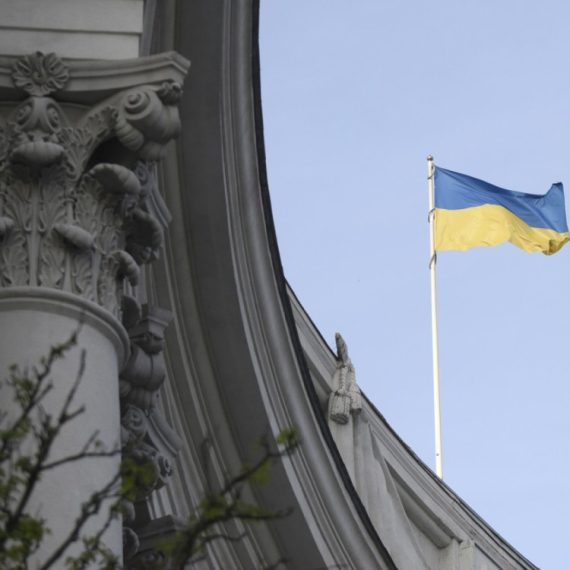

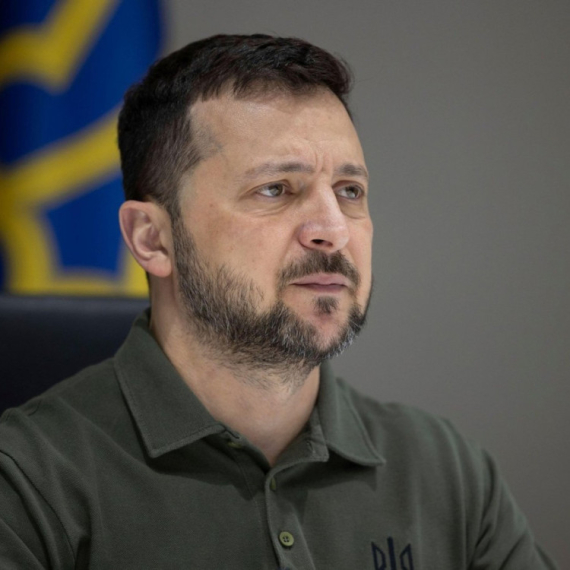

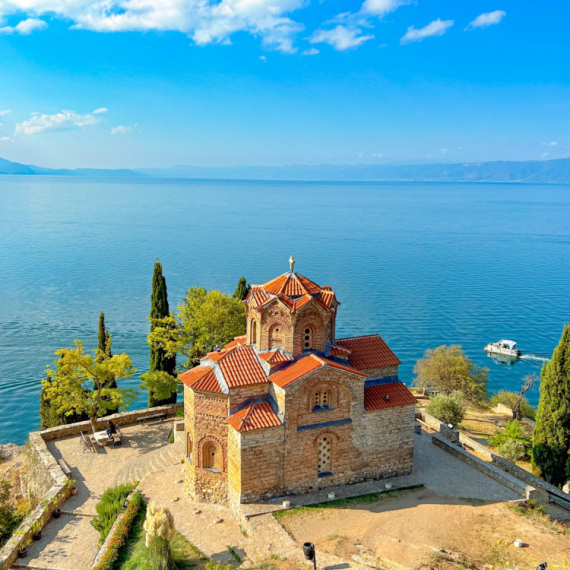
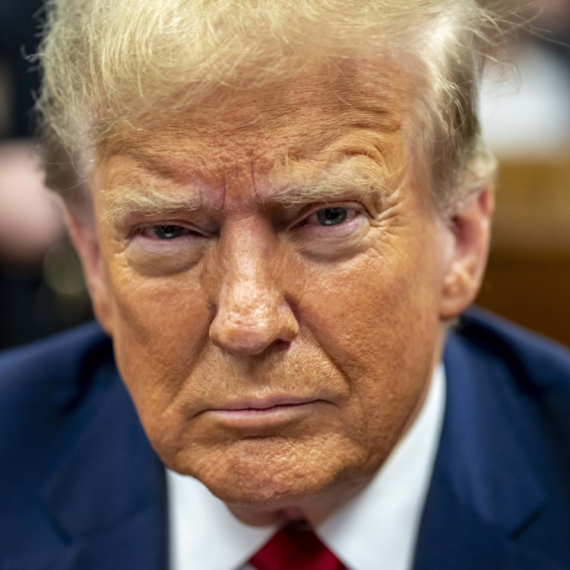
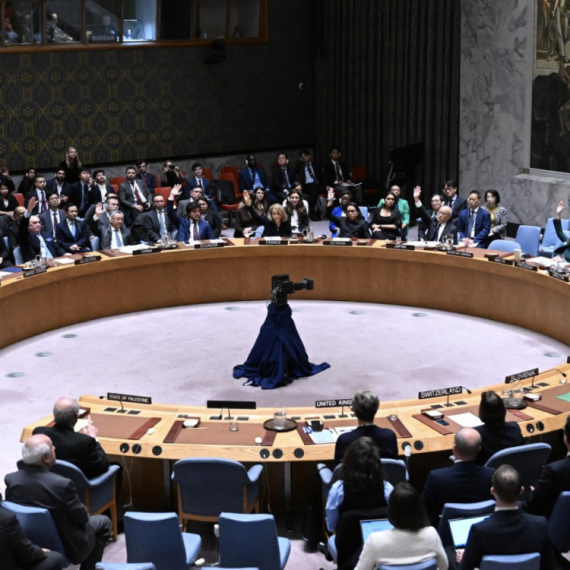








































Komentari 23
Pogledaj komentare